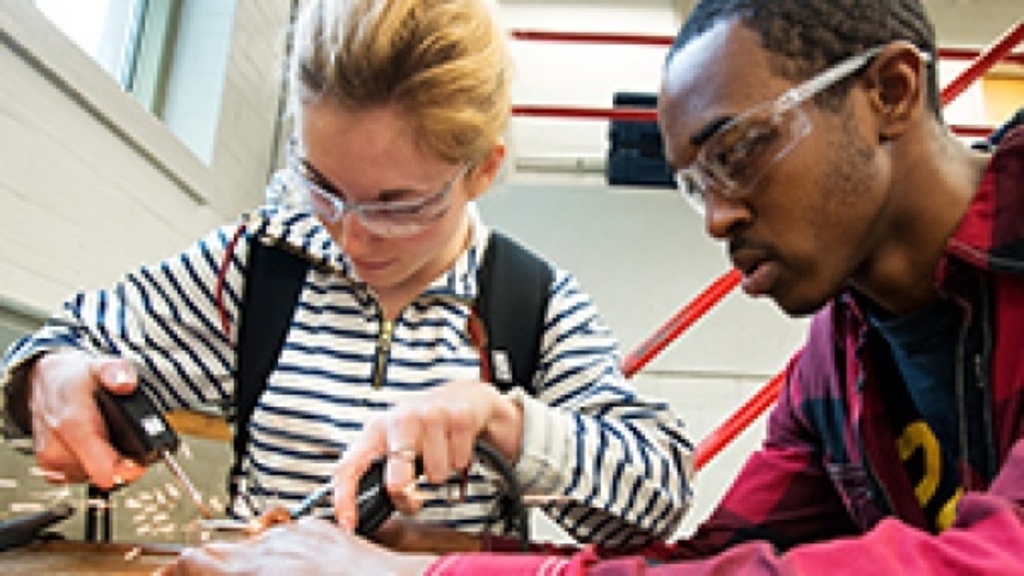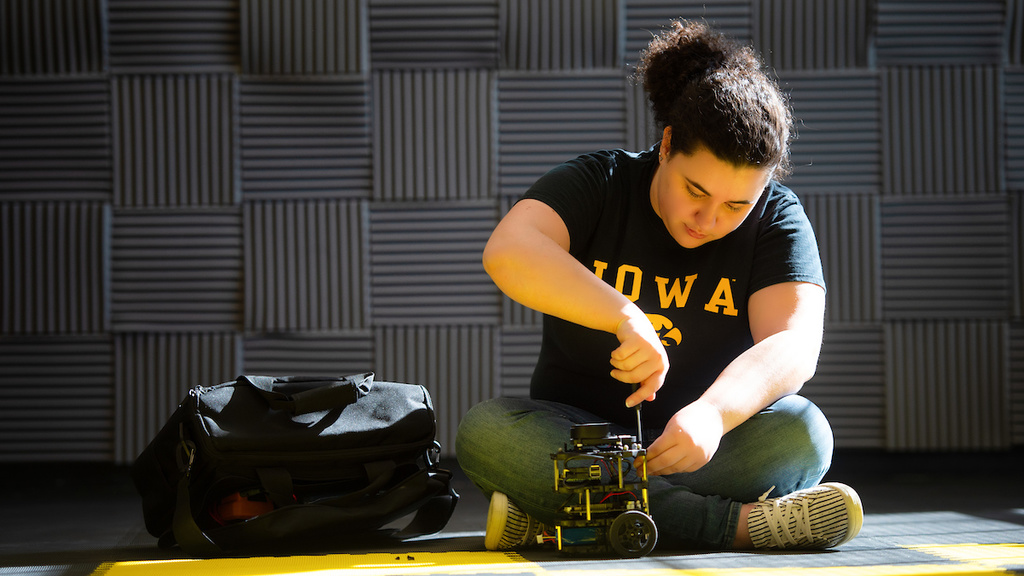What Can You Study?
Biomedical Engineering
A biomedical engineer uses traditional engineering expertise to analyze and solve problems in biology and medicine, providing an overall enhancement of human health. Students choose the biomedical engineering field to be of service to people, to experience the excitement of working with living systems, and to apply advanced technology to the complex problems of medical care. Biomedical engineers work with health care professionals (e.g., physicians, nurses, therapists, and technicians) and may be called upon in a wide range of capacities such as designing instruments, devices, and software. Biomedical engineers incorporate knowledge from many technical sources to develop new medical procedures and conduct research in an effort to solve clinical problems.
Chemical Engineering
Chemical and biochemical engineering (CBE) combines engineering principles with knowledge of mathematics and specific sciences—particularly chemistry and the biological sciences—to develop and operate processes that convert raw materials into products that benefit society and energy that fuels the world. Chemical engineering is unique among other engineering professions in its harnessing of chemical reactions and physical/chemical processes to sustainably improve quality of life and well-being on our planet.
Civil Engineering
Today, civil engineers are in the forefront of technology. Civil engineering is about community service, development, and improvement. It involves the conception, planning, design, construction, and operation of facilities essential to modern life, ranging from transit systems to offshore structures to space satellites. Civil engineers are problem solvers, meeting the challenges of pollution, traffic congestion, drinking water and energy needs, urban redevelopment, and community planning. Civil engineering is part of the Department of Civil and Environmental Engineering (CEE):
Computer Science and Engineering
The computer science and engineering (CSE) major combines the technical content of a computer science degree and a computer engineering degree in a single degree program. The program provides students with a strong theoretical and conceptual understanding of the principles underlying computer software and hardware along with the engineering analysis, design, and multidisciplinary teamwork skills needed to develop large and complex systems containing both software and hardware components. The CSE major is part of the Department of Electrical and Computer Engineering (ECE):
Electrical Engineering
The electrical engineering (EE) program provides students with a strong theoretical and experimental understanding of the principles underlying hardware and software, ranging from device physics to medical imaging and electronics, embedded systems, and control systems engineering. Students may opt to specialize in any of these areas as well as others including: electrical power generation and distribution, medical image processing, computer systems, or design of micro- and nano-scale optical and electronic devices. The EE major is part of the Department of Electrical and Computer Engineering (ECE):
Environmental Engineering
Environmental engineering and science training offers to work in any aspect of environmental protection. The major areas include air pollution control, industrial hygiene, radiation protection, hazardous waste management, toxic materials control, water supply, wastewater management, storm water management, solid waste disposal, public health, and land management. And, within each of these major categories are many sub-specialties. Environmental engineering is part of the Department of Civil and Environmental Engineering (CEE):
Industrial and Systems Engineering
In short: Industrial engineers figure out how to do things better. Industrial engineers work to enhance systems and processes. They explore business challenges and find innovative solutions to boost efficiency, safety, and effectiveness. They work in many different roles and organizations, designing supply and distribution networks, information systems, as well as industrial and service processes for industries as diverse as banks, manufacturers, and hospitals. The Department of Industrial and Systems Engineering (ISE) graduates engineers ready to continue learning, to lead and inspire others, and to engage with their professional community and society.
Mechanical Engineering
Mechanical engineering (ME) is broadly concerned with energy, manufacturing, and design of machines. Mechanical engineers conceive, plan, design, and direct the manufacture, distribution, and operation of a wide variety of devices, machines, and systems—including complex human-machine systems—for energy conversion, biofuel production, environmental control, materials processing, transportation, materials handling, and other purposes. Major subspecialties include thermal-fluid phenomena, and machines and mechanical systems.
Future Students
Information on admissions and how we prepare you for your career

Undergraduate Programs
The college offers Bachelor of Science in Engineering (BSE) degrees in eight majors across six departments.
Graduate Programs
Twenty research locations covering six academic programs means numerous options for you.

Undergraduate-to-Graduate (U2G)
Get your graduate degree faster by combining your undergraduate and graduate coursework.

Transfer Students
Thinking about becoming a Hawkeye? We make it easy to stay on track and graduate on time.

Scholarships
Hundreds of scholarship opportunities make your education affordable
Take a virtual tour:
